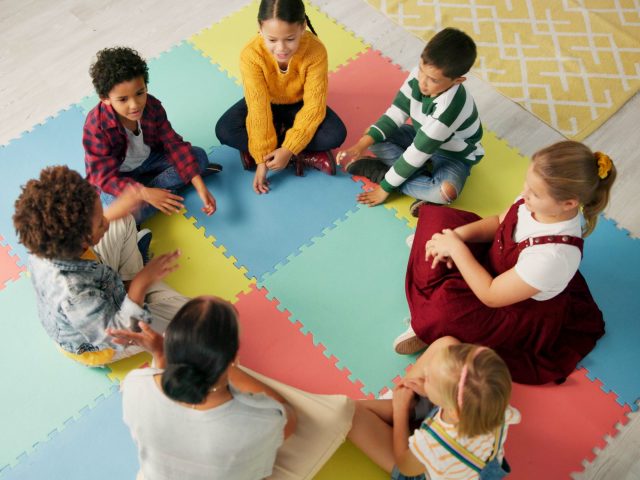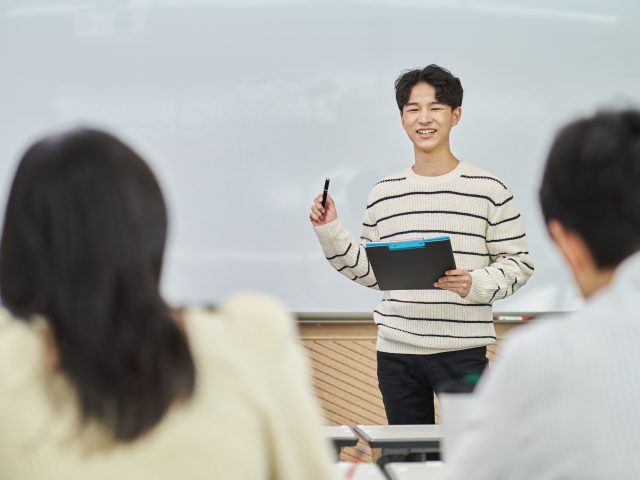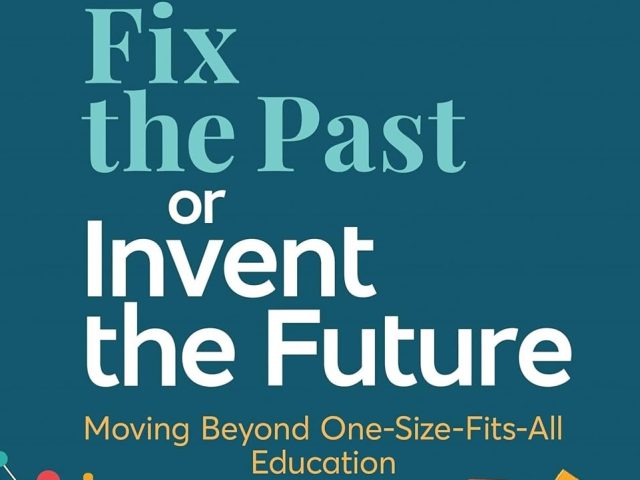
When teachers get advice from psychology and neuroscience, we start by getting individual bits of guidance. For instance…
… mindful meditation reduces stress, or
… growth mindset strategies (done the right way) can produce modest benefits, or
… cell phones both distract students and reduce working memory.
Each single suggestion has its uses. We can weave them, one at a time, into our teaching practices.
After a while, we start asking broader questions: how can we best combine all those individual advice bits?
For instance: might the benefits of growth mindset strategies offset the detriments of cell phones?
Happily, in recent years, researchers have started to explore these combination questions.
Retrieval Practice, Generative Learning
Long time readers know about the benefits of retrieval practice. Rather than simply review material, students benefit when they actively try to recall it first.
So too, generative learning strategies have lots of good research behind them. When students have to select, organize, and integrate information on their own, this mental exercise leads to greater learning. (Check out a handy book review here.)
Now that we have those individual bits of guidance, can we put them together? What’s the best way to combine retrieval practice with generative learning?
A recent study explored exactly this question.
Researchers in Germany had college students study definitions of 8 terms in the field of “social attribution.”
So, for instance, they studied one-sentence definitions of “social norms” or “distinctiveness” or “self-serving bias.”
One group — the control group — simply studied these definitions twice.
A second group FIRST reviewed these words with retrieval practice, and THEN generated examples for these concepts (that’s generative learning).
A third group FIRST generated examples, and THEN used retrieval practice.
So, how well did these students remember the concepts — 5 minutes later, or one day later?
The Envelope Please
The researchers wanted to know: does the order (retrieval first? generation first?) matter?
The title of their study says it all: “Sequence Matters! Retrieval practice before generative learning is more effective than the reverse order.”
Both 5 minutes later and the next day, students who did retrieval practice first remembered more than those who came up with examples first (and, more than the control group).
For a variety of statistical reasons, I can’t describe how much better they did. That is: I can’t say “These student scored a B, and these score a B-.” But, they did “better enough” for statistical models to notice the difference.
And so, very tentatively, I think we teachers can plan lessons in this way: first instruct, then have students practice with retrieval, then have them practice with generation.
Wait, Why “Tentatively”?
If the research shows that “retrieval first” helps students more than “generation first,” why am I being tentative?
Here’s why:
We can’t yet say that “research shows” the benefits of a retrieval-first strategy.
Instead, we can say that this one study with these German college students who learned definitions of words suggests that conclusion.
But: we need many more studies of this question before we can spot a clear pattern.
And: we’d like some 1st grade students in Los Angeles, and some 8th grade students in Reykjavik, and some adult learners in Cairo before we start thinking of this conclusion as broadly applicable.
And: we’d like to see different kinds of retrieval practice, and different kinds of generative learning strategies, before we reach a firm conclusion.
After all, Garvin Brod has found that different generative learning strategies have different levels of effectiveness in various grades. (Check out this table from this study.)
To me, it seems entirely plausible that students need to retrieve ideas fluently before they can generate new ideas with them: hence, retrieval practice before generative learning.
But, “entirely plausible” isn’t a research-based justification. It’s a gut feeling. (In fact, for various reasons, the researchers had predicted the opposite finding.)
So, I think teachers should know about this study, and should include it our thinking.
But, we shouldn’t think it’s an absolute conclusion. If our own students simply don’t learn well with this combination, we might think about switching up the order.
TL;DR
Students learn more from retrieval practice, and they learn more from generative learning strategies.
If we want to combine those individual strategies, we’ll (probably) help students more if we start with retrieval practice.
And: we should keep an eye out for future research that confirms — or complicates — this advice.
Roelle, J., Froese, L., Krebs, R., Obergassel, N., & Waldeyer, J. (2022). Sequence matters! Retrieval practice before generative learning is more effective than the reverse order. Learning and Instruction, 80, 101634.
Brod, G. (2020). Generative learning: Which strategies for what age?. Educational Psychology Review, 1-24.






